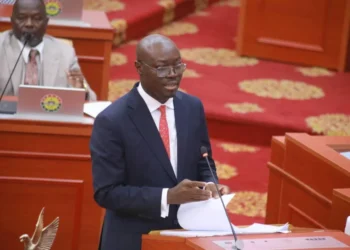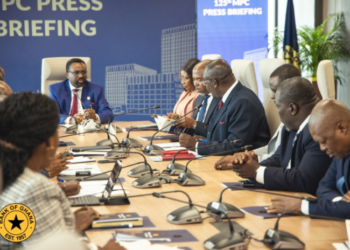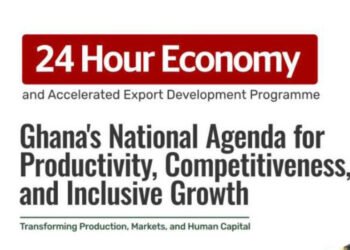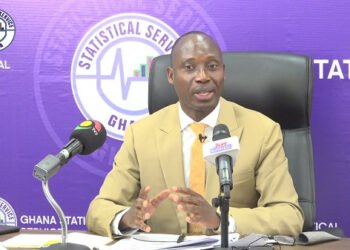Dr. Maxwell Opoku-Afari, First Deputy Governor of the Bank of Ghana has stated that the coming months will be challenging for media reporting and the country will need the support of journalists in navigating the interactions between the Government of Ghana and the IMF.
The First Deputy Governor of the Bank of Ghana noted that government is currently seeking support from the IMF and noted that the process is not going to be smooth sailing but assured Journalists that there are going to be news worthy issues arising out of the engagement.
Speaking at a Financial Literacy Workshop in Northern Zone Ghana for Media Practitioners, Dr. Maxwell Opoku-Afari iterated that the Bank’s sponsorship of the training workshop speaks to its commitment to improving the quality of financial and business journalism in Ghana.
“Your role is to begin to have authentic sources of obtaining information on the process and report these to the public in a manner that will seek to bring about confidence in the process. We need to remember that Ghana is a Market Access Country and economic news affect sentiments.
“We need at all times to have the interest of the country above all what we do. As journalists, you must also demand a mechanism for having an update on the process and overtures can be made to Government to have a structure to brief journalists on the process”.
Dr. Opoku-Afari
According to him, this centers on the BoG’s believe that a critical mass of financial and business journalists is capable of dissecting complex financial and economic data and in an accurate manner on Ghana’s macroeconomic and financial situation to help sustain the economic recovery in this period of heightened uncertainties.
Journalists contribution to economic recovery
Speaking on the role that financial and business journalists can play in sustaining the economic recovery through confidence building, he noted that it is generally acknowledged that the behavior of economic agents is influenced by the economic and financial environment, which is largely shaped by the media.
“The media’s role in influencing the economic narrative is even more important during periods of heightened uncertainty when all kinds of news including fake news are rife on social media, even at times within mainstream media. The spread of such misinformation has the potential to jolt financial markets and create panic among the general public with dire implications for financial stability”.
Dr. Opoku-Afari
Under such instances, Dr. Opoku-Afari said that business and financial journalists have additional responsibilities to help financial market participants and the general public to draw a clear distinction between facts and fiction and decide the newsworthiness of the information at hand for accurate reportage, a crucial ingredient for confidence building.
Beyond dealing with personal biases, business and financial journalists need to develop analytical skills necessary to understand the complex relationships between financial and economic variables, he noted.
The Deputy Governor further highlighted that “It is my firm believe that workshops like this can help equip journalists like yourselves with the relevant knowledge of the financial sector and the nature of risks and incentives facing the sector”.
Dr. Opoku-Afari further indicated that as central bank with priority for controlling inflation, the Bank of Ghana views transparency as key in promoting credibility of the Bank’s policies. Transparency is possible when the media accurately and in the right language informs and educate the public of the exact nature of developments in the economy as well as the real implications of actions taken by policymakers, he emphasized.
Hence, he indicated that such training workshops, which seek to equip financial journalists to play key roles in the dissemination of economic and financial information to the public, should be taken seriously. Engagements with stakeholders also foster the creation of an informed public, whose accurate grasp of economic and financial issues are important in ensuring calm financial markets and seamless functioning of the economy.
The journalists were taken through topics such as monetary policy practice in Ghana; understanding inflation dynamics; balance of payments dynamics; understanding foreign exchange rate markets; central bank digital currency (e-cedi); and introduction to the summary of economic and financial data as well as hands-on exercises.
READ ALSO: Japan, AfDB Announce Up To $5 Billion In Support For Africa’s Private Sector























